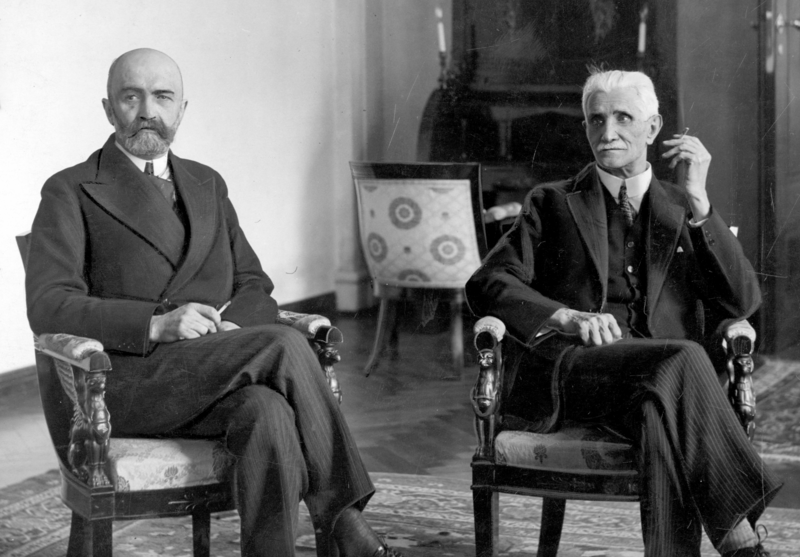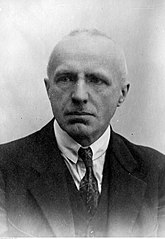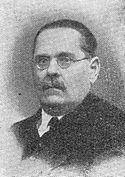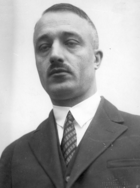1930 Polish parliamentary election|
|
|
| Turnout | 74.8%[1] |
|---|
|
|
Majority party
|
Minority party
|
Third party
|
|
|
|
|
|
| Leader
|
Walery Sławek
|
Joachim Bartoszewicz
|
Mieczysław Niedziałkowski
|
| Party
|
BBWR
|
SN
|
PPS
|
| Leader since
|
November 1927
|
October 1928
|
1930
(as chairman of PPS caucus)
|
| Leader's seat
|
1 – Warsaw
|
Senate - Kielce Area
|
9 - Płock
|
| Last election
|
125
|
Did not exist
(28 as ZLN)
|
64
|
| Seats won
|
249
|
63
|
23
(79 as Centrolew)
|
| Seat change
|
 124 124
|
 25 25
|
 41 41
|
| Popular vote
|
5,292,725
|
1,443,165
|
590,820
|
| Percentage
|
46.7%
|
12.7%
|
5.1%
(17.3% as Centrolew)
|
|
|
|
Fourth party
|
Fifth party
|
Sixth party
|
|
|
|
|
|
| Leader
|
Jan Dąbski
|
Dmytro Levytsky
|
Wincenty Witos
|
| Party
|
SCh
|
UNDO
|
PSL "Piast"
|
| Leader since
|
1929
|
1925
|
December 1, 1918
|
| Leader's seat
|
State list - no. 7
|
51 - Lwów
|
84 - Tarnów
|
| Last election
|
26
|
26
|
17
(28 as Catholic Bloc)
|
| Seats won
|
18
(79 as Centrolew)
|
17
(21 as BUB)
|
15
(79 as Centrolew)
|
| Seat change
|
 8 8
|
 9 9
|
 2 2
|
| Popular vote
|
472,656
|
449,033
|
401,758
|
| Percentage
|
4.0%
(17.3% as Centrolew)
|
3.8%
|
3.4%
(17.3% as Centrolew)
|
|
|
|
Seventh party
|
Eighth party
|
Ninth party
|
|
|
|
|
|
| Leader
|
Maksymilian Malinowski
|
Antoni Ponikowski
|
Karol Popiel
|
| Party
|
PSL "Wyzwolenie"
|
PSChD
|
NPR
|
| Leader since
|
1925
|
1925
|
1929
|
| Leader's seat
|
27 - Zamość
|
State list - no. 19
|
none
|
| Last election
|
40
|
16
(28 as Catholic Bloc)
|
14
|
| Seats won
|
15
(79 as Centrolew)
|
14
|
8
(79 as Centrolew)
|
| Seat change
|
 25 25
|
 2 2
|
 6 6
|
| Popular vote
|
ca. 400,000
|
430,074
|
165,429
|
| Percentage
|
3.4%
(17.3% as Centrolew)
|
3.8%
|
1.4%
(17.3% as Centrolew)
|
|
 Results by constituency |
|
Parliamentary elections were held in Poland on 16 November 1930, with Senate elections held a week later on 23 November.[2] In what became known as the Brest elections (Polish: Wybory brzeskie), the pro-Sanation Nonpartisan Bloc for Cooperation with the Government took 47% of the vote and 249 of the 444 seats in Sejm and 77 of the 111 seats in the Senate. The elections are known as the least free elections in the Second Polish Republic due to the Brest trial controversy.









